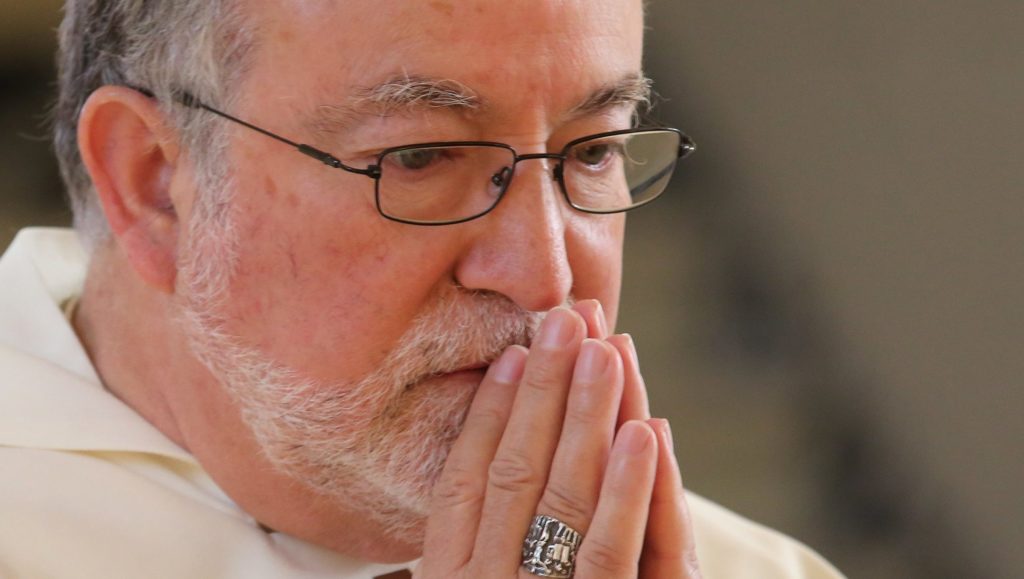The Diocese of Sacramento, California, has announced it will file for bankruptcy by March in an effort to resolve more than 250 sexual abuse lawsuits filed under a three-year California lookback window.
Bishop Jaime Soto announced the news Dec. 9, saying in a letter to diocesan faithful that he had made the decision following "careful consideration and consultation."
"Without such a reorganization process, it is likely that not all the abuse victim-survivors would receive a fair consideration of their claim," he said in his letter. "The funds available to settle claims could be depleted by the first few cases addressed, leaving those that follow with little or no compensation."
In a letter to the faithful this March, Bishop Soto had warned that a "staggering number of claims" filed under California's AB 218 -- which commenced on Jan. 1, 2020 and expired Dec. 31, 2022 -- stood to "overwhelm" the diocese, presenting a "financial challenge … unlike anything we have faced before."
Bishop Soto stressed in his Dec. 9 letter that "only the administrative office of the bishop … will be seeking bankruptcy protection" in the Chapter 11 reorganization filing, and that "parishes and schools would continue their operations uninterrupted."
In an FAQ webpage about the bankruptcy, the diocese said its parishes and Catholic high schools are incorporated separately as "distinct financial and legal entities" operating independently of the diocese. Those, along with the corporations overseeing its Catholic cemeteries, Catholic Foundation and social service agencies, "would be largely unaffected by the diocese filing a bankruptcy petition," the diocese explained.
However, in filings by other dioceses, "creditors have challenged the status of these separate corporations," the diocese added. "That is why we have advised our pastors that if a bankruptcy filing did take place, they would need to prepare for such challenges and seek independent legal assistance."
The FAQ webpage noted that almost half of the more than 250 claims "involve allegations from the 1970s or earlier," with "more than 80 percent involve allegations from the 1980s or earlier."
It also pointed out that only six claims allege abuse occurring after the diocesan reforms and safeguards were implemented in 2002, the year the U.S. Conference of Catholic Bishops established its "Charter for the Protection of Children and Young People," more commonly known as the Dallas Charter.
The webpage also said that the diocese's existing assets, some of which are expected to be sold during the bankruptcy process, are insufficient to cover the claims costs, despite "serious cuts and reductions in expenses."
While it has "limited insurance coverage remaining from previous decades" when abuse was alleged to have occurred, "a significant number of claims fall in periods where there is no insurance available to address those matters," the diocese noted.
The diocese acknowledged that "aside from insurance coverage, lawsuit settlement payments are made with funds that began as donations from the people of God," since "everything our diocese does, buys or owns is paid for by the contributions of the faithful.
"This includes settling cases and trying to provide some sense of compensation to those who were betrayed by priests they were taught to trust," it said.
At the same time, "other funds related to the diocese are held in trust for specific purposes designated by the donors," the diocese added.
Such donor-restricted monies, which include donations to the annual diocesan appeal, are generally not considered in the bankruptcy process, according to the diocese, which added that it is expects "the court would follow a well-established path in these matters."
"I remain steadfast in my belief that I must continue to atone for the horrible sin of clergy sexual abuse," said Bishop Soto in his Dec. 9 letter. "The sickening evil that was perpetrated upon innocent children – and the failure of church leadership to address it appropriately – has caused unfathomable pain that endures. It is these sins that brought us to this place."
He urged the faithful to "pray for the healing of victim-survivors."
"The pain inflicted on them lasts a lifetime, and so our atonement must be a lifetime commitment," said Bishop Soto.
New California laws will require such a commitment: on Oct. 14, California Gov. Gavin Newsom enacted AB 452, which eliminates the statute of limitations for alleged childhood sexual assault occurring on and after Jan. 1, 2024, and SB 558, which expands the definition of (and statute of limitations for) childhood sexual assault to include acts involving child pornography.

